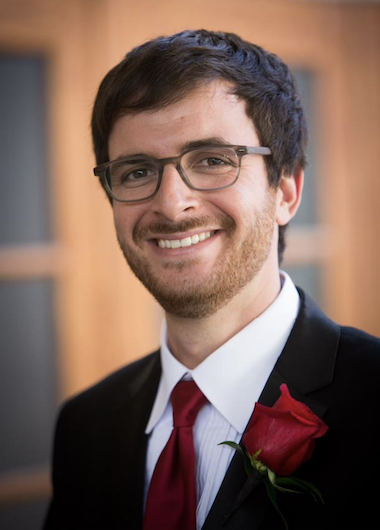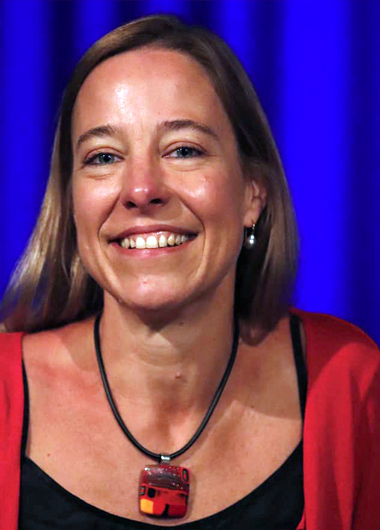Germanic Linguistics Annual Conference 31
Welcome to Germanic Linguistics Annual Conference 31. GLAC is the annual conference of the Society for Germanic Linguistics (SGL) based in North America. This year’s conference will be held at the UNT University Gateway Center. The conference will take place in person from May 2 to May 3, 2025.
Our 2025 Plenary Speakers

Isaac L. Bleaman
University of California, Berkeley
Social Dimensions of Variation in Yiddish: Historical Perspectives and New Insights
Yiddish contributed significantly to the development of sociolinguistics and language contact, particularly through the pioneering work of Uriel Weinreich and Joshua Fishman. However, very little quantitative variationist research has been conducted on either contemporary or historical varieties of the language. In this talk, I will present my findings on the social significance of variation in New York-based communities that are committed to language maintenance in Yiddish.
The results show how differences in communities' maintenance practices and ideologies (e.g., whether to prioritize language dominance; whether to standardize the language) have contributed to inter-community differences in the quantitative patterning of two variables: voice onset time and number agreement. At the end of the talk, I will preview the resources available in the Corpus of Spoken Yiddish in Europe (CSYE), which is now being developed through a National Science Foundation CAREER grant. Among other applications in research and language revitalization, the CSYE will provide the data necessary to address questions related to the social meaning of variation and the direction of language change in the pre-Holocaust period.

Theresa Biberauer
University of Cambridge, Stellenbosch University, University of the Western Cape,
and CRISSP, KU Leuven
What you can learn from imperatives: the case of Afrikaans
Grammatically speaking, Afrikaans is a peculiar mix of the conservative and the innovative.
On the one hand, it retains the characteristic West Germanic word-order properties
of Verb Second and OV, and verb clusters, and it has separable and non-separable particle
verbs, modal particles, and even some scrambling. On the other hand, there are phenomena
like “quirky V2” (Vandag loop koop ons pannekoek, lit: today walk buy we pancake,
i.e. ‘Today, we’re going to go and buy pancakes.’ ), negative concord involving a
clause-final concord element (Die pannekoek is nie duur nie, lit. the pancake is not
expensive neg, i.e. ‘The pancake isn’t expensive.’), and Differential Object Marking
(Ek sien dit en ek sien vir jou, lit: I see it and I see for you, i.e. ‘I see it and
I see you.’), none of which are replicated in other Germanic varieties.
The purpose of this talk is to make the case for the idea that a further innovation – Afrikaans’s distinctive moenie (must.not)-containing negative imperative – plays a key role in signaling to acquirers of the language both its conservative and its innovative properties. I highlight evidence from Southern African German varieties (Namibian and Kroondal German) and from South African English in support of this proposal.
In addition, there will be a preconference workshop on computational linguistics on
May 1 (from 3:00 to 6:00 CT) organized by:
Frederik Hartmann (University of North Texas)
We invite faculty, graduate students, and independent scholars to submit abstracts to Germanic Linguistics Annual Conference 31. GLAC 2025 will take place in person at the University of North Texas from Friday, May 2 to Saturday, May 3, 2025. Preceding the main sessions of GLAC, there will be a workshop on computational linguistics on Thursday, May 1.
Papers may be on any aspect of any historical or modern Germanic language or dialect, including English (up to the Early Modern period) and the extraterritorial varieties. Papers from the full range of linguistic and philological subfields, including phonetics, phonology, morphology, syntax, semantics, pragmatics, sociolinguistics, stylistics, language variation, language typology, metrics, first and second language acquisition, foreign language education, language contact and language change, as well as differing theoretical perspectives, are welcome.
All participants may submit a maximum of two abstracts, including one abstract for a single-authored paper and one for a co-authored paper. Accepted papers will be scheduled for 30-minute presentations (a 20-minute talk, followed by a 10-minute question-and-answer period). All abstracts will undergo anonymous peer review.
Abstracts must be submitted electronically in PDF format by February 15, 2025. They should be anonymous, a maximum of one single-spaced page (including references), and in standard 12-point font. They should be submitted through EasyAbs at: https://easyabs.linguistlist.org/conference/GLAC31/
Notification of acceptance will be sent by March 1, 2025.
You may register for the GLAC 2025 conference by clicking here. Please register by April 21 at the latest, so that we have an accurate count for catering.
The registration rate depends on the participant’s membership to the Society for Germanic Linguistics:
- Student SGL members: $40
- Student non-members: $65
- Faculty/non-student SGL members: $100
- Faculty/non-student non-members: $150
The registration rate includes some light refreshments throughout the conference and one reception. The banquet is $50 for all participants.
We encourage all participants to join SGL, which includes a subscription to the Journal for Germanic Linguistics. To join the society, click here!
UNT is located in Denton, TX, about 40 minutes north of Dallas/Fort Worth International Airport (DFW). There is a second airport, Dallas Love Field (DAL), that is about 45 minutes away. While there is public transportation to Denton, the easiest way (by far) to get to Denton is by shared ride services. The conference site is the University Gateway Center.
We have reserved 40 rooms at a discount rate in SpringHill Suites (1434 Centre Place Drive, Denton, TX 76205). Reservations must be made by April 3, 2025. Click the following link to make a reservation:
Book your group rate for Germanic Linguistics Annual Conference 31
There are two other hotels close to the conference site: Hampton Inn & Suites (1513 Centre Place Drive, Denton, TX 76205; tel. 940-891-4900) and Studio 6 (700 Fort Worth Drive, Denton, TX 76201; tel. 940-387-5840).
While it might be possible to walk to the conference site from Studio 6 (about 20-30 minutes), the other hotels are further away (40-50 minutes on foot). There are two other ways to get to the conference site (considering that part of the conference is on the weekend): GoZone vans at $1.50 per person/per ride (GoZone On-Demand | DCTA) and other shared ride services. There may be street parking around the university, but that is very limited.
Thank you to our Sponsors!
College of Information
Department of Linguistics
Department of World Languages, Literatures, and Cultures
Division of Research and Innovation Conference Sponsorship (UNT)
Global Venture Fund (UNT)
Max Kade Foundation
Jewish Studies
For any questions, please contact Dorian Roehrs (Dorian.Roehrs@unt.edu) and/or Frederik Hartmann (Frederik.Hartmann@unt.edu).